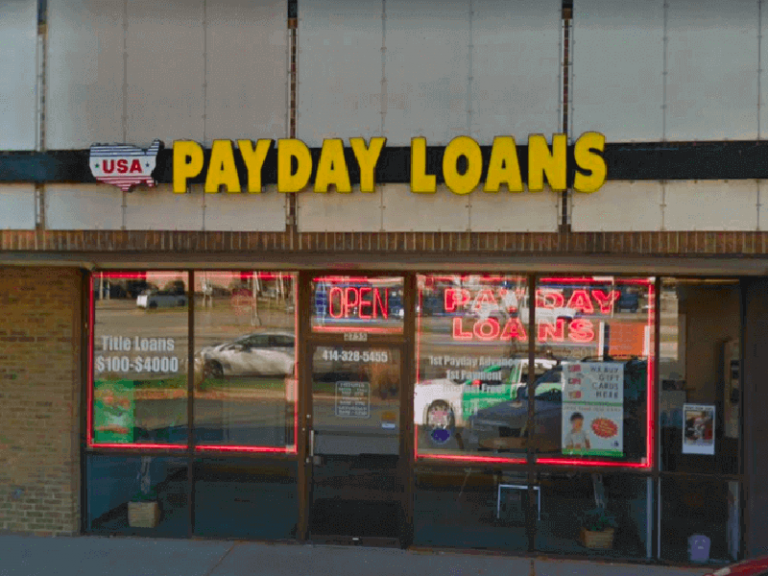Same Day Payday Loans Wichita Ks

In Wichita, Kansas, the promise of quick cash through same-day payday loans offers a lifeline for some, but casts a long shadow of financial vulnerability for others. These short-term, high-interest loans, designed to bridge the gap between paychecks, have become increasingly prevalent, raising concerns among consumer advocates and sparking debate about their true cost to the community.
This article delves into the complex world of same-day payday loans in Wichita, KS, examining their prevalence, the regulatory landscape, the experiences of borrowers, and the potential alternatives available. We aim to provide a balanced perspective, highlighting both the perceived benefits and the significant risks associated with these financial products, while exploring the ongoing efforts to protect consumers in the face of potentially predatory lending practices.
The Appeal and Prevalence of Same-Day Payday Loans
The allure of same-day payday loans lies in their speed and accessibility. In times of unexpected expenses or financial emergencies, the ability to obtain funds quickly can be a crucial advantage. These loans often require minimal paperwork and credit checks, making them accessible to individuals with poor credit histories or those facing immediate financial needs.
Wichita, like many cities across the United States, has witnessed a significant presence of payday loan lenders. The concentration of these lenders, particularly in lower-income neighborhoods, suggests a targeted market. Data from the Kansas Office of the State Bank Commissioner indicates a fluctuating but persistent demand for short-term loans, pointing to the ongoing financial struggles faced by many residents.
Understanding the Loan Structure
Same-day payday loans are typically small-dollar loans, ranging from $100 to $500, designed to be repaid within a short period, usually two weeks or until the borrower's next payday. However, the interest rates and fees associated with these loans can be exorbitant, often exceeding 300% APR (Annual Percentage Rate). This high cost of borrowing can trap borrowers in a cycle of debt, where they are forced to repeatedly renew or "rollover" their loans, incurring additional fees each time.
The structure of these loans often involves a post-dated check or electronic debit authorization, allowing the lender to withdraw the loan amount plus fees directly from the borrower's bank account on the due date. If the borrower lacks sufficient funds to cover the payment, they face additional fees from both the lender and their bank, further compounding their financial difficulties.
The Regulatory Landscape in Kansas
Kansas law does regulate payday lending, but consumer advocates argue that the existing regulations are insufficient to adequately protect borrowers. The Kansas Uniform Consumer Credit Code (UCCC) sets some limits on loan terms and interest rates, but loopholes and exceptions allow lenders to charge significantly higher rates than would be permitted under stricter regulations.
Efforts to strengthen consumer protections have faced resistance from the payday lending industry, which argues that stricter regulations would limit access to credit for those who need it most. The industry maintains that it provides a valuable service by offering short-term loans to individuals who may not qualify for traditional bank loans.
However, critics argue that the industry profits from the financial vulnerability of its customers, trapping them in a cycle of debt. They point to the high rates of default and repeat borrowing as evidence that payday loans often exacerbate financial problems rather than solve them.
The Borrower's Experience
The experiences of borrowers who rely on same-day payday loans in Wichita are often characterized by a mix of relief and regret. While the initial access to cash can provide temporary relief from immediate financial pressures, the high cost of borrowing can quickly lead to a downward spiral.
Many borrowers report feeling trapped by the cycle of debt, struggling to repay the loan and fees on time, and forced to take out additional loans to cover their expenses. This cycle can have devastating consequences, leading to damaged credit scores, bank account closures, and even bankruptcy. Stories abound of individuals paying back far more than the original loan amount in fees and interest.
Financial counseling and debt management services often find themselves working with individuals who have been significantly harmed by payday loans. These services help borrowers develop budgets, negotiate with creditors, and explore alternative financial options.
Alternatives to Payday Loans
Recognizing the risks associated with payday loans, several organizations in Wichita are working to provide alternatives for individuals facing financial emergencies. These alternatives include:
- Credit union loans: Credit unions often offer small-dollar loans with more reasonable interest rates and repayment terms.
- Community development financial institutions (CDFIs): CDFIs provide financial services to underserved communities, offering loans and financial education.
- Emergency assistance programs: Local charities and social service agencies may offer emergency assistance for basic needs such as food, rent, and utilities.
- Negotiating with creditors: Sometimes, simply communicating with creditors and explaining the situation can lead to more flexible payment arrangements.
Raising financial literacy is also crucial. Organizations offer free workshops and resources to help individuals learn how to budget, save, and manage their money effectively. Increased financial literacy can empower individuals to make informed financial decisions and avoid the pitfalls of predatory lending.
The Future of Payday Lending in Wichita
The debate surrounding same-day payday loans in Wichita is likely to continue. Consumer advocates will continue to push for stronger regulations to protect borrowers from predatory lending practices.
Technological advancements may also play a role. Fintech companies are exploring alternative lending models that could provide more affordable and accessible credit options. The key will be ensuring that these new models prioritize consumer protection and avoid replicating the pitfalls of traditional payday loans.
Ultimately, addressing the root causes of financial vulnerability is essential. This requires a multi-faceted approach that includes job creation, affordable housing, access to healthcare, and increased financial literacy. By investing in the economic well-being of its residents, Wichita can reduce the demand for high-cost, short-term loans and create a more equitable financial landscape.


















